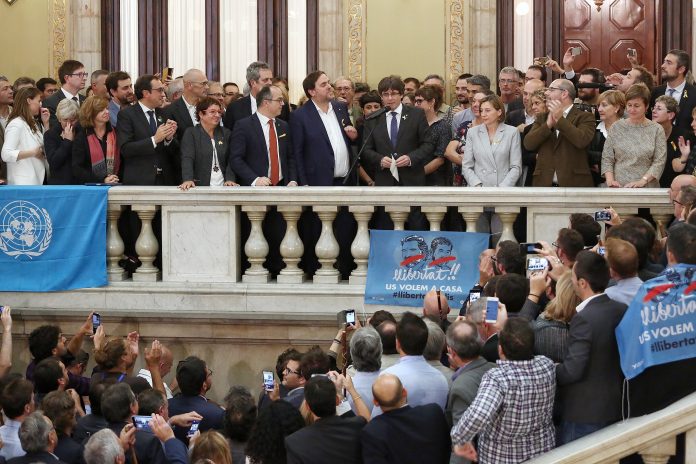The extradition of former Catalan President, Carles Puigdemont, was officially requested by the public prosecutor for Germany’s northern state of Schleswig-Holstein.
Puigdemont is being charged in Spain with rebellion and misuse of public funds, for his involvement in the Catalan independence referendum of October 2017. He was arrested on March 25 when he entered Germany on his way back to Belgium where he had been living in self-imposed exile.
As reported by Deutsche Welle (DW), Germany’s international broadcaster, Puigdemont’s case is now before the Schleswig-Holstein’s highest court, where a so-called senate of three judges will decide whether the request for extradition has the necessary substance and whether Puigdemont should continue to be held.
“At the moment, it is too early to say when a decision by the Senate for Criminal Matters on the application for the extradition arrest warrant may be expected,” the court said in a statement.
In an interview with Catalan radio, Puigdemont’s lawyer Jaume Alonso-Cuevillas spoke of “infringements of basic rights that we will prove have been committed by the Spanish state” and called his client “a political prisoner”.
On March 30, the German government said it would not interfere or veto any court decision on Puigdemont’s fate, as the act would be considered a “legal affront” by the federal government against the judicial system.
According to DW, one of Puigdemont’s German lawyers disputed the claim his client had done anything potentially punishable under German law, arguing that high treason must involve the threat of violence.
“The hurdle is extremely high in that the perpetrator must exercise violence or threaten with violence,” attorney Wolfgang Schomburg told DW-TV. “There is not the slightest proof [of that].”
Schomburg added that convicting individuals of crimes based on their political beliefs was strictly forbidden by German law.
In related news, the Agence France-Presse (AFP) reported that Puigdemont has filed an appeal in Spain against a decision to prosecute him, arguing the rebellion charge against him is not justified.
Seen by AFP, the 85-page appeal asks that the Spanish Supreme Court’s “actions” be declared “null” 10 days after Judge Pablo Llarena said 25 Catalan separatist leaders – including Puigdemont – would be prosecuted over the region’s secession bid.
The appeal also states that under Spanish law, the rebellion offence, which can carry up to 30 years in prison, implies there was a violent uprising.
But it maintains that if there was any violence before or on October 1, the day when an independence referendum was held in Catalonia despite a court ban, it was “isolated” and did not justify the rebellion offence.

